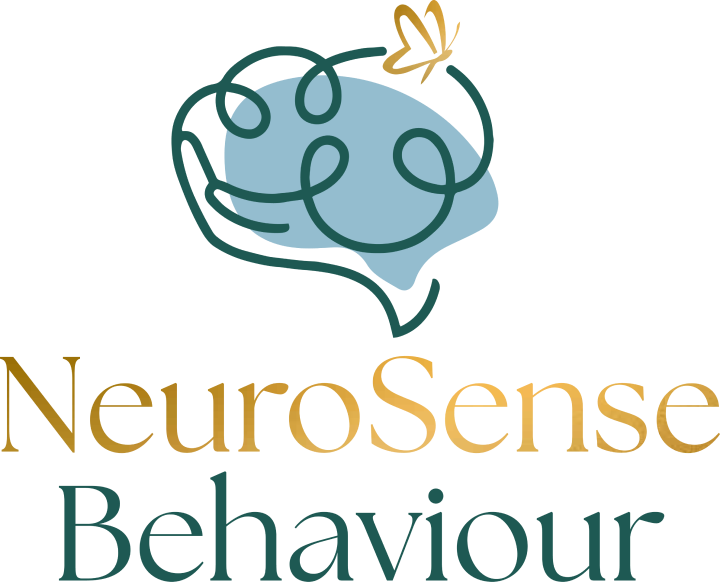Understanding autism and the role of a psychologist is essential for parents, educators, and caregivers supporting children with Autism Spectrum Disorder (ASD). Psychologists play a significant role in identifying, diagnosing, and providing therapy for children with autism, helping them navigate social, emotional, and behavioral challenges.
In this article, we’ll explore how a psychologist can help a child with autism, the different therapies used, and how families can benefit from psychological support.
What is Autism Spectrum Disorder (ASD)?
Autism Spectrum Disorder (ASD) is a developmental condition affecting communication, behavior, and social interaction. Children with autism may face challenges in understanding social cues, expressing emotions, and adapting to changes in routines.
While autism is a lifelong condition, early intervention can significantly improve a child’s quality of life. This is where a child psychologist plays a pivotal role.
Table of Contents
The Role of a Psychologist in Supporting Children with Autism
A psychologist’s role in helping a child with autism goes beyond diagnosis. They provide tailored therapies and strategies to address specific challenges, helping children thrive in various areas of life.
Here are some key ways a psychologist can help:
1. Early Diagnosis and Assessment
One of the first steps a psychologist takes is diagnosing autism. Through comprehensive assessments, they evaluate:
- Social interactions
- Communication skills
- Behavioral patterns
- Cognitive abilities
Why is early diagnosis important?
It allows parents to start interventions at an early age, maximizing the child’s developmental potential.
Speech Therapy Methods: A Complete Guide to Effective Techniques
Speech therapy is a vital intervention that helps individuals improve their communication skills, addressing speech, language, and voice disorders. It’s particularly crucial for children and
2. Behavioral Therapy (Applied Behavior Analysis – ABA)
One of the most effective therapies for children with autism is Applied Behavior Analysis (ABA). Psychologists use ABA to encourage positive behaviors and reduce negative behaviors by reinforcing specific actions.
Benefits of ABA therapy include:
- Improved communication skills
- Better social interaction
- Reduced tantrums and aggressive behavior
- Increased independence in daily activities
3.Social Skills Training
Many children with autism struggle with understanding social norms and building relationships. Psychologists help children develop social skills through structured training sessions that teach:
- Eye contact
- Conversation skills
- Recognizing emotions
- Sharing and turn-taking
These skills help children navigate social settings, making it easier for them to form meaningful connections.
4.Emotional Regulation Techniques
Children with autism often experience difficulty managing emotions, which can lead to meltdowns or anxiety. Psychologists teach emotional regulation techniques, such as:
- Deep breathing exercises
- Identifying emotions
- Coping strategies for anxiety and frustration
These techniques help children remain calm and manage stress effectively.
5. Cognitive Behavioral Therapy (CBT)
Cognitive Behavioral Therapy (CBT) is another method psychologists use to help children with autism manage their thoughts and emotions.
How does CBT help?
- Reduces anxiety
- Improves problem-solving skills
- Helps children understand how their thoughts influence their feelings and behaviors
6. Parental Guidance and Family Counseling
Psychologists also work closely with families to provide support and guidance. They help parents understand their child’s unique needs and offer strategies for:
- Managing challenging behaviors at home
- Encouraging positive reinforcement
- Building routines and structure
Family counseling sessions also improve communication within the household, fostering a supportive environment for the child.
7. Addressing Sensory Processing Issues
Many children with autism experience sensory processing challenges, where they may be overly sensitive to sounds, lights, or textures. Psychologists help children manage these sensory issues through desensitization techniques and coping strategies.
Benefits of Psychological Intervention for Children with Autism
Psychological support can bring numerous benefits to children with autism, including:
| Benefit | Description |
|---|---|
| Improved Communication | Helps children express themselves effectively. |
| Better Social Interaction | Enhances the ability to form relationships. |
| Reduced Anxiety | Helps manage fears and worries. |
| Emotional Regulation | Teaches coping strategies for emotional outbursts. |
| Increased Independence | Encourages self-reliance in daily tasks. |
What Activities Do Psychologists Use to Help Children with Autism?
Psychologists use a variety of activities tailored to a child’s unique needs, such as:
- Role-playing games to improve social interaction
- Visual aids to enhance understanding
- Storytelling to build emotional awareness
- Sensory play to address sensory processing issues
- Reward systems to reinforce positive behaviors
Why is Early Psychological Support Important for Autism?
Early intervention can significantly improve a child’s life by:
- Enhancing their ability to communicate
- Building essential life skills
- Reducing anxiety and behavioral issues
- Helping them adapt to school and social settings
The earlier a psychologist begins working with a child, the more progress they are likely to achieve.
How Can a Psychologist Help Parents of Children with Autism?
Parents of children with autism often feel overwhelmed by the challenges they face. A psychologist can provide:
- Parent training sessions to teach effective behavior management techniques
- Emotional support to help parents cope with stress and anxiety
- Resources and recommendations for educational tools, support groups, and community services
Is Speech Therapy Also Necessary for Children with Autism?
Yes, speech therapy is another crucial component of autism intervention. While psychologists focus on emotional and behavioral development, speech therapists work on improving:
- Language skills
- Nonverbal communication
- Understanding of social cues
Both psychologists and speech therapists play complementary roles in a child’s development.
Why Do Children with Autism Need Psychological Support?
Children with autism need psychological support to help them:
- Navigate social interactions
- Manage emotional challenges
- Build essential life skills
- Achieve greater independence
Psychological intervention helps children develop the skills they need to lead fulfilling lives and integrate better into society.
What is the Most Effective Approach in Helping Children with Autism?
The most effective approach for helping children with autism is a multidisciplinary strategy that combines:
- Behavioral therapy
- Social skills training
- Parental guidance
- Sensory integration therapy
- Speech therapy
Each child is unique, and psychologists tailor their approach to meet individual needs.
Final Thoughts: Why You Should Consider Psychological Support for Children with Autism
Psychologists play a vital role in helping children with autism navigate challenges in communication, behavior, and social interaction. With the right intervention, children can achieve significant improvements in their quality of life.
If you’re a parent or caregiver of a child with autism, seeking help from a licensed psychologist can provide the guidance and support your child needs to thrive.
NeuroSenseBehaviour Clinical Child Psychologist in Rawalpindi & Islamabad Best clinical psychologist in Islamabad & Rawalpindi, providing compassionate care for children’s developmental needs. Specialised in ABA therapy
About NeuroSense Behaviour
As a parent, understanding your child’s sensory experiences can be key to helping them thrive. Sensory issues, such as being overly sensitive to lights, sounds, or textures, can impact a child’s behavior, focus, and emotional well-being. Recognizing these signs early is crucial for providing the right support.
At NeuroSenseBehaviour, we specialize in identifying and addressing sensory issues through personalized therapies tailored to each child’s needs. Our expert team is here to guide you and provide the tools necessary for your child’s development and comfort. If you suspect your child may be struggling with sensory sensitivities, don’t wait—contact us today to Free schedule a consultation. Together, we can unlock your child’s full potential and help them navigate the world more confidently.
Reach out to NeuroSenseBehaviour now for the support your child deserves!

Mawissh Shamim Clinical Psychologist
Mawissh Shamim is a dedicated UK licensed clinical psychologist committed to supporting neurodivergent individuals. She holds a Master’s degree in Clinical Psychology from the University of Karachi, where she developed a strong foundation in psychological theories and practices. To further enhance her expertise, Mawissh pursued advanced certifications, including becoming an International Behavioural Analyst (IBA) accredited by the International Behavioural Organisation.
